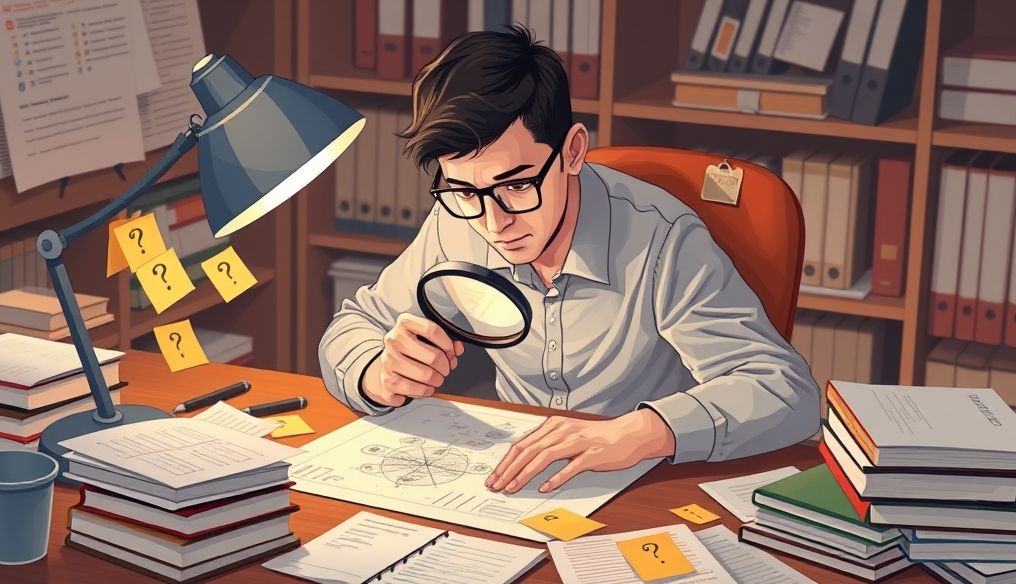Introduction: Why is Critical Thinking Important?
In a world filled with conflicting information and fake news, critical thinking has become an absolute necessity. It helps us to:
- Make better decisions in our personal and professional lives.
- Avoid falling victim to manipulation and deception.
- Solve complex problems effectively.
- Develop a deeper understanding of the world around us.
Chapter 1: Understanding the Basics of Critical Thinking
What is Critical Thinking?
Critical thinking is the process of analyzing and evaluating information and ideas in an objective and logical manner. It involves:
- The ability to identify hidden assumptions.
- Evaluating evidence and arguments.
- Recognizing logical fallacies.
- Drawing accurate and appropriate conclusions.
Components of Critical Thinking
Critical thinking consists of several essential elements, including:
- Analysis: Breaking down information into smaller parts to understand it better.
- Evaluation: Determining the validity and reliability of information.
- Inference: Drawing logical conclusions based on the available evidence.
- Interpretation: Understanding the meaning and significance of information.
- Self-Regulation: Monitoring and evaluating your own thinking process.
Chapter 2: Challenging Your Assumptions
What are Assumptions?
Assumptions are beliefs or ideas that we consider to be true without conclusive evidence. They are often unconscious and influence the way we think.
How to Challenge Your Assumptions?
- Identify your assumptions: Try to identify the beliefs that influence your decisions and opinions.
- Ask yourself "Why?": Keep asking yourself "Why do I believe this?" until you reach the underlying assumptions.
- Look for counter-evidence: Try to find information or experiences that contradict your assumptions.
- Be open to changing your mind: Don't be afraid to change your beliefs if you find compelling evidence.
Chapter 3: Evaluating Information
Sources of Information
Information comes from various sources, such as:
- News articles.
- Books and magazines.
- Websites.
- Social media.
- Other people.
How to Evaluate Information?
When evaluating information, consider the following:
- Source of information: Is the source reliable? Does it have potential biases?
- Accuracy: Is the information accurate and supported by evidence?
- Recency: Is the information up-to-date?
- Relevance: Is the information relevant to the topic?
- Comprehensiveness: Does the information provide a complete picture of the topic?
Chapter 4: Recognizing Logical Fallacies
What are Logical Fallacies?
Logical fallacies are errors in reasoning that make an argument invalid or unconvincing. There are many types of logical fallacies, such as:
- Ad Hominem: Attacking the person making the argument rather than the argument itself.
- Straw Man: Distorting the opponent's argument to make it easier to attack.
- Appeal to Authority: Relying on the opinion of a famous or authoritative person without providing evidence.
- Slippery Slope: Claiming that a small step will inevitably lead to a series of negative consequences.
How to Recognize Logical Fallacies?
- Learn about the types of logical fallacies: Look for examples of each type of fallacy.
- Pay attention to the language used: Logical fallacies often use emotional or exaggerated language.
- Ask yourself "Is the argument logical?": Does the evidence support the conclusion? Are there any gaps in the reasoning?
Chapter 5: Asking the Right Questions
The Importance of Questions
Asking the right questions is an essential part of critical thinking. It helps us to:
- Understand the topic more deeply.
- Identify hidden assumptions.
- Evaluate the evidence.
- Draw better conclusions.
Types of Questions
There are different types of questions we can ask, such as:
- Clarification questions: "What do you mean by that?" "Can you explain that in more detail?"
- Assumption questions: "What assumptions is this argument based on?" "Are these assumptions valid?"
- Evidence questions: "What evidence supports this argument?" "Is this evidence reliable?"
- Perspective questions: "Are there other perspectives on this topic?" "What are the arguments for and against each perspective?"
Chapter 6: Developing Effective Listening Skills
Active Listening
Active listening means focusing completely on the speaker and trying to understand their point of view without interrupting or making premature judgments.
How to Develop Effective Listening Skills?
- Pay attention to body language: Maintain eye contact and show interest in what the speaker is saying.
- Ask clarifying questions: Make sure you understand what the speaker is saying.
- Rephrase what the speaker said: To make sure you understood correctly.
- Avoid interrupting: Let the speaker finish speaking before you respond.
- Be open to different points of view: Even if you disagree with the speaker, try to understand their point of view.
Chapter 7: Practicing Critical Thinking in Daily Life
Critical Thinking at Work
Use critical thinking to make better decisions, solve problems, and evaluate new ideas.
Critical Thinking at Home
Use critical thinking to evaluate the information you receive from the media and make informed decisions about your health and finances.
Critical Thinking in the Community
Use critical thinking to participate in public discussions, evaluate government policies, and make informed decisions about social issues.
Chapter 8: Additional Resources for Developing Critical Thinking
- Books: There are many excellent books on critical thinking, such as "Critical Thinking: Tools for Taking Charge of Your Learning and Your Life" by Richard Paul and Linda Elder.
- Training Courses: Many universities and institutions offer training courses in critical thinking.
- Websites: There are many websites that provide information and resources on critical thinking, such as The Critical Thinking Community.
- Games and Puzzles: Games and puzzles can help develop critical thinking skills, such as Sudoku and Crosswords.
Conclusion
Critical thinking is an essential skill that can be developed through practice and effort. By challenging your assumptions, evaluating information, recognizing logical fallacies, and asking the right questions, you can unlock your potential and make better decisions in all aspects of your life.




